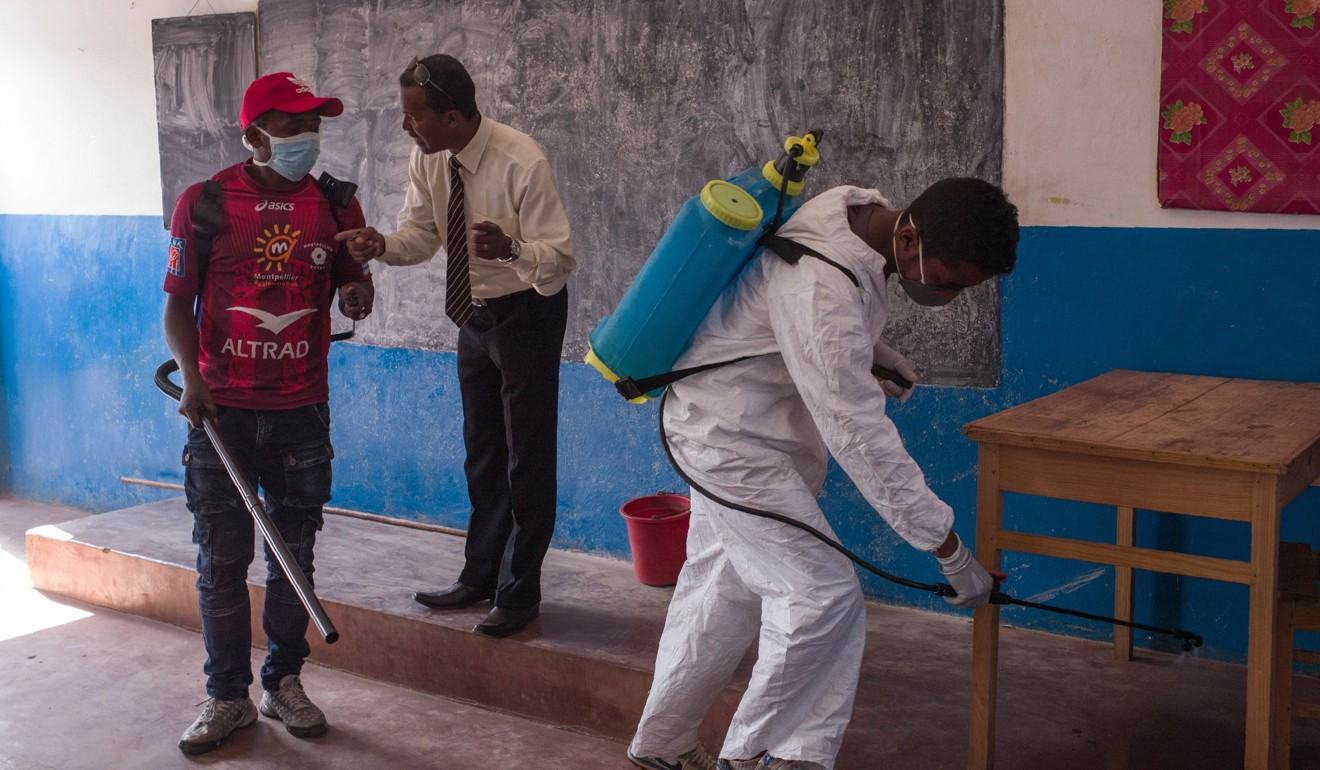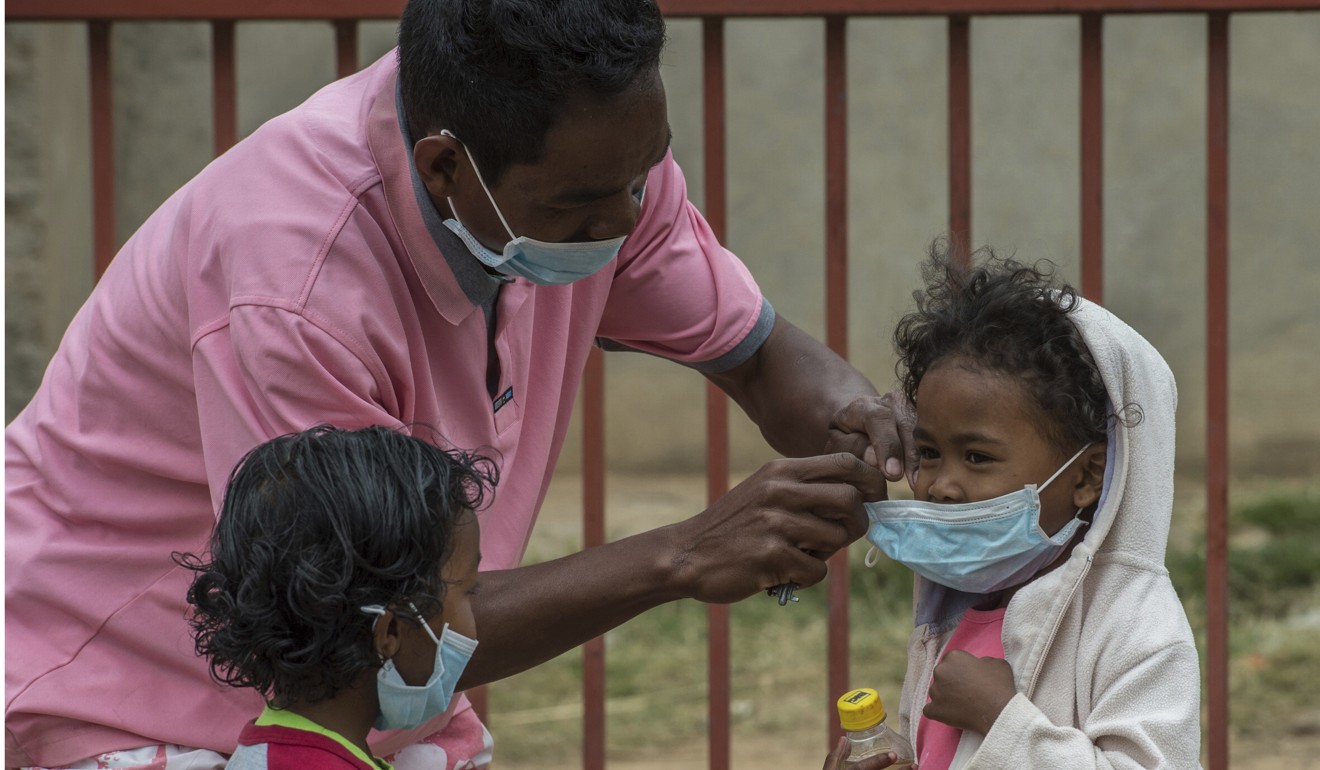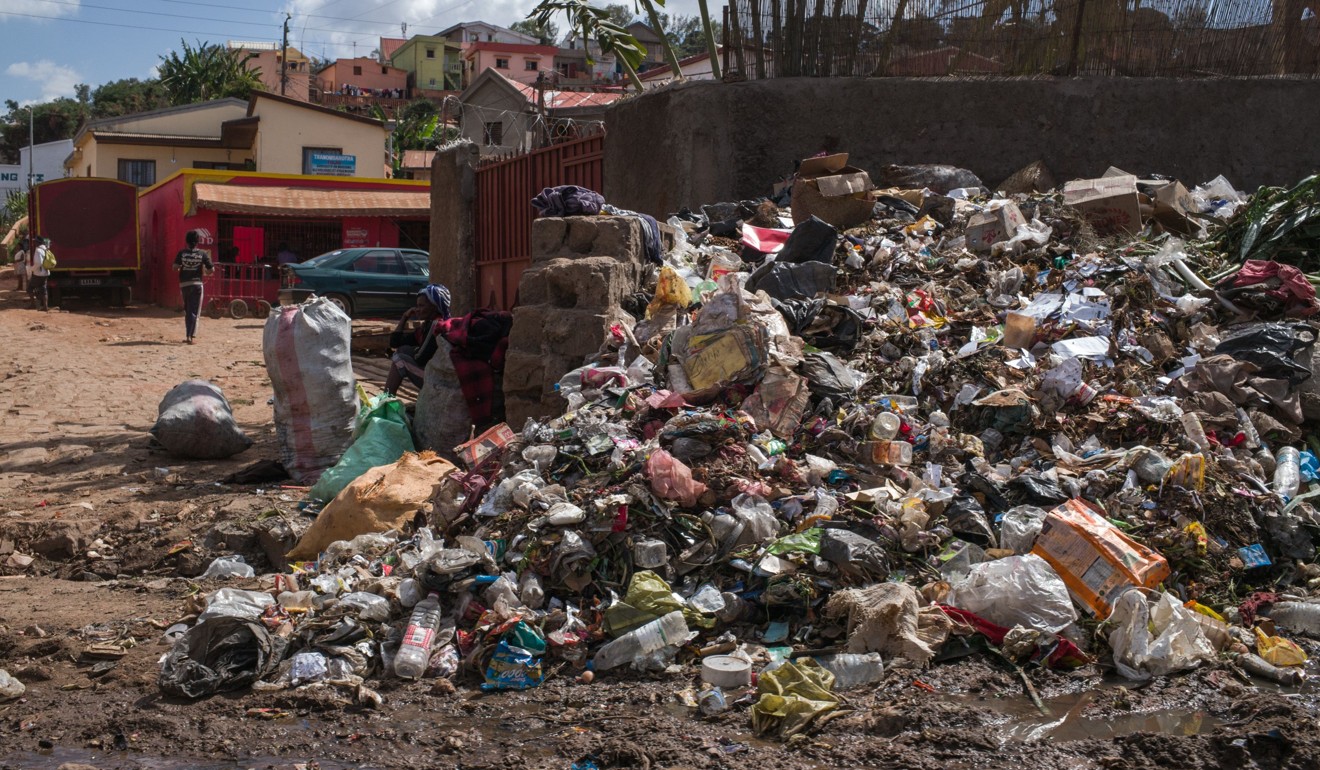
An ancient peril sows panic in Madagascar as plague spreads
24 people have died nationwide, with the disease spreading to the capital
Crowds of fearful residents flock to their local pharmacies before dawn in Madagascar, desperate to buy masks and antibiotics, as they seek modern solutions to ward off an ancient peril – plague.
In just the past few days, the highly infectious disease – rarely thought of elsewhere as a modern threat – has wreaked havoc in this poor Indian Ocean island nation, particularly in the capital Antananarivo, where six people have died.
Like many of his neighbours, 50-year-old Johannes Herinjatovo quickly became overwhelmed by fear as news of the outbreak spread.
He too joined the long lines forming outside the capital’s chemists.

“I’d already visited six this morning and at each one they told me that they didn’t have any more masks,” he said as he left a pharmacy empty-handed.
His wife Miora Herinjatovo, 55, had better luck, successfully locating a mask in a hospital.
“Everyone is looking for one,” she said.
“Some pharmacies are saying that there won’t be any more in the city. Others are telling us to wait. We just don’t know.”
Having failed to get hold of a mask, her husband instead collected a handful of generic antibiotics.


Prime Minister Olivier Mahafaly Solonandrasana dropped a bombshell on national TV on Saturday when he announced that 24 people have died nationwide from the plague since the end of August.
Madagascar is actually in the grips of a double plague: both bubonic plague, which is spread by infected rats via flea bites, and pneumonic plague, spread person to person.
Pneumonic plague can kill quickly, within 18-24 hours of infection if left untreated, but common antibiotics can cure it if they are taken early.
Although it is not common elsewhere, Madagascar has suffered plague to some extent almost every year since 1980, often brought by rats fleeing forest fires.
But the current outbreak has affected large urban areas, increasing the risk of transmission according to the World Health Organisation.
The government has been forced to take drastic action, banning all public gatherings in the capital in a bid to slow the disease’s spread.
Many residents of Antananarivo suspect that authorities have been caught off guard and have sought to lay their hands on whatever preventive measures they can – regardless of their efficacy.
“We do what we can and what we think could help protect us,” said Rondro Razafindrainy, 37, as she queued outside another pharmacy.
“Pneumonic plague is spread by airborne transmission, I read that online, so I think a mask is essential,” she said.
“I don’t know if this mask will actually protect us, but everyone has one and I want one too,” said Maurice Rakotomanana interrupting her.
As the concern has grown, so too has the price of a standard mask: doubling from 300 ariary (US$0.10) to 600 ariary in a matter of hours.
Authorities are attempting to keep the public calm, laying traps to catch rats and spraying insecticide to kill fleas.
“We have focused our efforts on Facebook because there is too much misinformation going around social media and causing panic,” said Manitra Rakotoarivony, a government doctor, during a recent press conference.
“We can treat the plague, we have the means.”

.png?itok=arIb17P0)